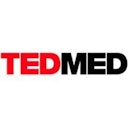
TEDMED

Produced in partnership with TEDMED
Building trust and relationships is key in changing vaccine-hesitant minds
Anthropologist Heidi Larson studies how to stop vaccine misinformation and rumors
According to the World Health Organization (WHO), the use of vaccines averts 4-5 million potential deaths a year from infectious diseases. But up to 1.5 million more infectious disease deaths could be prevented each year. While some of this gap results from supply chain or distribution issues, another key barrier is vaccine hesitancy – people choosing not to vaccinate, even when vaccines are available. These preventable deaths are why vaccine hesitancy was one of the top ten global health threats of 2019 as described by the WHO.
In her 2020 TEDMED talk, anthropologist Heidi Larson explained that like pathogens, rumors about vaccines spread, and can be just as damaging to public health efforts as the pathogen itself. Larson is the Founding Director of The Vaccine Confidence Project, a World Health Organization Centre of Excellence.
According to Larson, monitoring vaccine confidence is important because, in order for public health interventions to be successful, the public needs to be able to not only trust the technology, but the manner in which the technology is delivered. For this reason, monitoring vaccine confidence can also help with anticipating and countering issues before they arise. "You don't want to wait to see people opting out…when there might have been an opportunity to keep them engaged and on board for their own health," said Larson.
To that end, Larson has worked with colleagues to develop the Vaccine Confidence Index (VCI) which captures the emotional and cognitive dimensions of vaccine hesitancy and mistrust. Inspired by the consumer confidence index, the VCI addresses four key dimensions around vaccines: do people consider vaccines safe, effective, important, and compatible with their religious beliefs. This survey information is then combined with socio-economic information from survey respondents to parse out relationships between individual level and country level data.
The reasons for vaccine hesitancy are complex and often specific to a particular place. A common thread underlying record measles case numbers in the United States and Europe in 2019 is the hoax that has wrongly linked the measles, mumps, and rubella (MMR) vaccine as a cause of colitis and autism. "That became a rumor that went viral and to this day is deep in the minds of people," said Larson. Even before the COVID-19 pandemic, countries with higher socio-economic status were displaying increased negative sentiment towards vaccines. Indeed, Larson's work shows that Europe, particularly France, is one of the most vaccine skeptical regions of the world.
Political actors and foreign policy can also play a critical role in the success or failure of vaccination efforts. One example is the Nigeria polio boycott from 2003-2004 where key political actors like the Supreme Council for Sharia in Nigeria (SCSN) amplified pre-existing concerns about the pharmaceutical industry and rumors that vaccines were being used as a means of population control for Muslims. The resulting standoff cost the Global Polio Eradication Initiative $500 million.
More recently, the CIA's decision to fake a Hepatitis B vaccination campaign in Pakistan as part of the effort to assassinate Osama Bin Laden has further jeopardized polio eradication campaigns. These patterns reflect a growing trend of medical populism where political actors use conflict between the people and "the establishment" to create political currency, leading to increased politicization of vaccination campaigns.
Because the factors leading to vaccine mistrust are unique and context specific, Larson advocates for first diagnosing an anti-vaccine rumor or hoax, in order to prescribe the right solution. This is why the Vaccine Confidence Project works to detect both early signals and amplifiers of vaccine mistrust. Some potential solutions include phone hotlines or staffing volunteers in healthcare waiting rooms to answer questions. Larson is particularly excited about developing chatbots that, through the power of machine learning and AI, can harvest public concerns from global social media monitoring and provide factual answers to common questions, but also identify questions that do not yet have answers.
Larson acknowledges that it is important to be transparent and not downplay unknowns or potential risks. "There are real adverse events. We don't know the answers to all of the parents' questions." Ultimately, Larson concluded in her TEDMED talk that, "we have a relationship problem, not a misinformation problem." Countering vaccine hesitancy will require rebuilding trust and creating opportunities for conversation.
Larson discusses these ideas in more depth in her recent book Stuck: How Vaccine Rumors Start – and Why They Don't Go Away.
